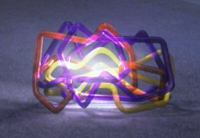Prolog Is Past
With apologies to Shakespeare, the correct quote is "What's past is prologue," which eloquently states that events and actions of today shape and foreshadow the world of tomorrow.
Prolog is an AI language of the past, and I had a little fun with it in the 1980s. I have long forgotten the language syntax, but do remember the program I wrote to answer a juvenile question: "If God's power is infinite, can he create a boulder he cannot move?"
On the screen appeared the answer I expected: "Undefined."
I shrugged, and was just a little disappointed the computer didn't crash or blow up, not realizing then, that "undefined" was a very good, if not the best possible answer.
Enter the prompt today in the Duck.ai / ChatGPT-4o, I was amused by its answer:
In contrast, the single world answer from 1980s Prolog resembled the actions of a Zen monk who responds with riddles (or a whack to the head) in an effort to guide you to your own enlightenment. Older now, I can imagine Prolog was prompting me to recognize that I was asking the wrong question.
Of course, Prolog isn't a Zen monk any more than ChatGPT-4o is a high school senior. But it's noteworthy that despite ChatGPT-4o being generations ahead of Prolog, I find the answer from Prolog much more satisfying. It's a matter of perspective.
Prolog is past, and past is prologue. AI will have arrived when it can answer the "God Boulder" question with "undefined," but for real.





Comments